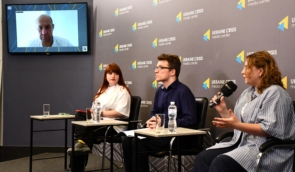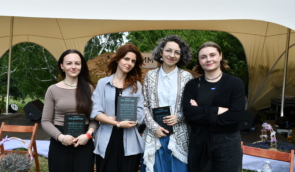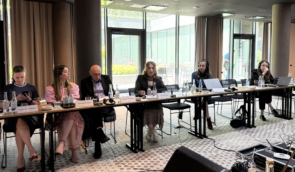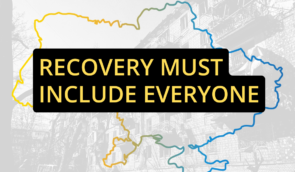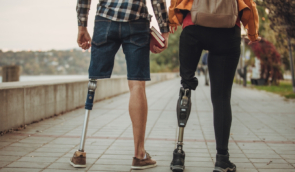Roma refugees abroad: documentary about discrimination against Roma in European countries presented and discussed in Ukraine
On December 18, International Migrants Day, Radio Liberty, ZMINA and Roma Women’s Fund “Chiricli” held a discussion of the documentary about Roma refugees from Ukraine “We are all people in the eyes of God” (“How are you?” project) which was made by Radio Liberty.
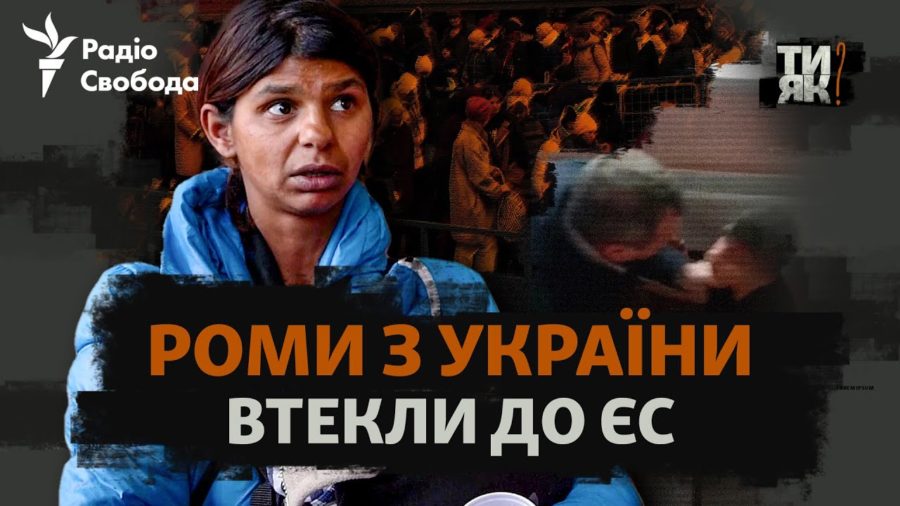
This documentary was presented on December 17, 2023 via the Radio Liberty channel . It tells the stories of Roma refugees who fled the war, came to European countries and faced discrimination abroad.
According to the Ukrainian authorities, almost 100,000 Roma have left the country since the beginning of the full-scale war. But not everyone managed to find shelter. Therefore, after more than a year and a half of the full-scale war, the Roma, not finding refuge in Europe, began to return to Ukraine. Radio Liberty visited Moldova, Hungary, and the Czech Republic to find out how they received displaced persons.
The author of the documentary, Radio Liberty correspondent Sashko Shevchenko said that, in particular, Roma refugees in Moldova could not officially receive employment or travel to EU countries as they did not have documents. After the full-scale war started, many Roma went to Hungary because many of them had citizenship in this country, but Hungary did not pay attention to the Hungarian passports of the refugees and officially equalized their rights with Ukrainians who received temporary protection status.
The Czech Republic, Sashko Shevchenko continues, also discriminated against the Roma, which the country itself later admitted:
” The authorities of the Czech Republic suspected that the Roma refugees were only interested in payments and wanted to receive money both in the Czech Republic and in Hungary where they have passports. But it turned out to be untrue, and the Czech police admitted it. But this led to the fact that many Roma refugees could not get asylum in the Czech Republic and were forced to go further .”
In addition, in all three countries Roma were often denied housing, so people had to live in poor conditions or even at railway stations.
Julian Kondur , the project coordinator of the international charitable organization Roma Women’s Fund “Chiricli”, said that, according to their organization’s assessment, about 50,000 Roma left the country because of the war. Kondur also confirmed the problem with the non-provision of housing for Roma in EU countries and reluctance to employ people, in particular, due to lack of education. According to him, the countries mentioned in the documentary are anti-leaders in their attitude towards Roma. The human rights defender also cited positive examples of countries’ attitudes towards Roma refugees:
” The Roma community of Poland has shown itself very actively, it still helps our refugees. Germany also had several large Roma organizations that supported Ukrainian Roma although the level of discrimination is quite high in Germany .”
Mykhailo Spasov , a representative of the Human Rights Commissioner on Equal Rights and Freedoms, Rights of National Minorities, Political and Religious Beliefs, commented that Roma refugees, who went abroad, did not address the Ombudsman for help or support: ” And this is the problem of all parties involved .” The Roma community representatives often do not trust the authorities and avoid communication with state institutions, he noted.
The discussion was moderated by Tetiana Pechonchyk , chair of Human Rights Center ZMINA.
Watch the documentary at the link . Video of the discussion is available here .
If you have found a spelling error, please, notify us by selecting that text and pressing Ctrl+Enter.

